Text
*shows up to the function*
me: *takes out blankets*
everyone: oh okay! whatever floats your-
me: *takes out pillows*
everyone: wait what are you d-
me: *pulls out sleep mask and pillow spray*
everyone: no no no wait what's hap-
me: honk shoo
93 notes
·
View notes
Text

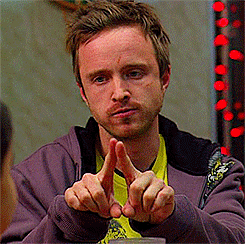
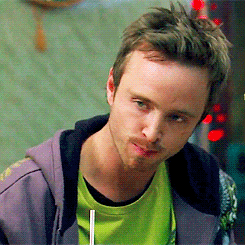
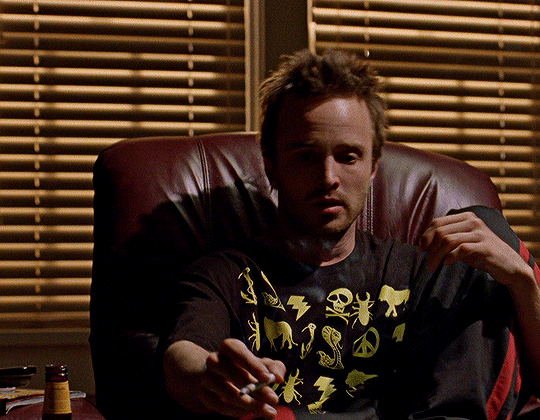


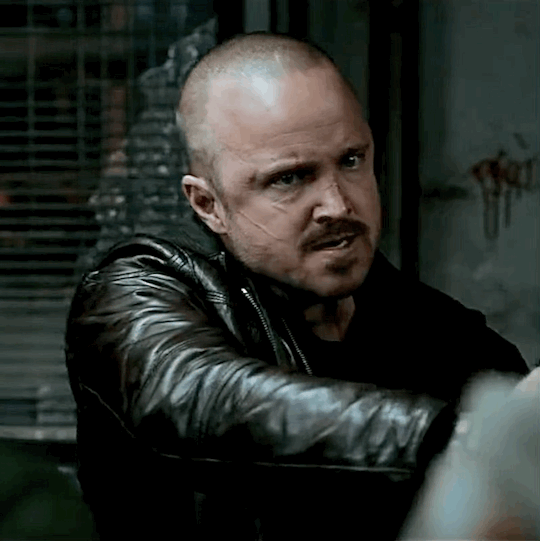
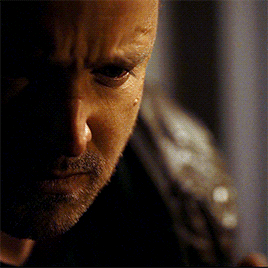
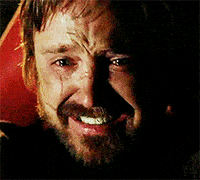
“Would you just, for once, stop working me?”
Jesse Pinkman (Aaron Paul)
382 notes
·
View notes
Text
not to talk about doctor who but remember being a lonely depressed teenager and hearing him say '900 years of time and space and i've never met anyone who wasn't important'
180K notes
·
View notes
Text
The Purpose of the Death Star
Another Star Wars post just to follow up on my first one! I just realized why the Death Star became such an iconic part of the series, other than it just being an exciting location and a threatening weapon within the confines of the story. I talked about wars before and during the Cold War era in my previous post, and how George Lucas was especially influenced by the events of the ‘60s and ‘70s when writing his science fantasy epic. However, I never mentioned the key part of both the Cold War and the Galactic Civil War of the Star Wars trilogy, that being their respective weapons of mass destruction.


The Death Star is the perfect stand-in for the atomic bomb. It is a weapon capable of obliterating an entire planet in an instant, an all-too familiar reminder of what an atom bomb could do to a major city. At the end of the day, people wanted the Rebels to destroy the Death Star (and it’s sequel) not just because we want the good guys to save the Galaxy, but because they could dream of a world where these terrible weapons that threaten our extinction daily were destroyed for good.
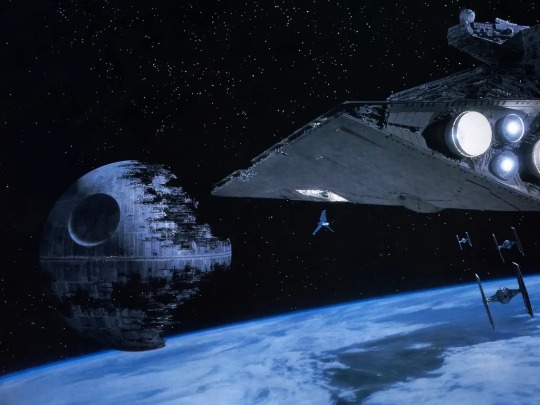
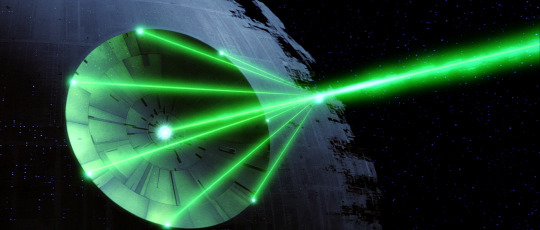
The people who watched the original trilogy who were old enough to understand some of the deeper meanings were also old enough to understand the true horror of the atomic bomb, and I fully believe that’s why the stories of the Death Stars became such key parts of this massive franchise.
Thank you for reading!
#star wars#a new hope#return of the jedi#galactic empire#death star#death star 2#cold war#george lucas#original trilogy#history#movies#movie#film#scifi#scififantasy
13 notes
·
View notes
Text
Star Wars and the Vietnam Connection
Trigger Warning: Mentions of Nazis, SS, Perpetrators of the Holocaust, and mentions/pictures of the Vietnam War.
For my first post, I wanna talk about something that many Star Wars fans are aware of, but something that I still think is cool and a good starting point!
Many people know that the Galactic Empire in the Star Wars franchise was, from a design perspective, based off of Nazi Germany. This is evident all throughout the original 1977 film, written and directed by George Lucas. The uniformity of the grey officers’ regalia is reminiscent of the infamous uniforms of Nazi SS Officers. Peter Cushing’s antagonistic character and the face of the Empire in this film, Grand Moff Tarkin (below), represents this connection, and his fellow Imperial Officers share similar clothing (While I will picture Tarkin below, I do not feel comfortable posting a picture of an SS officer on here). Another similarity would be the use of “Stormtrooper” to describe the Empire’s soldiers, a term which developed to describe special forces of the German Empire in World War One and became the common identification for Nazi troops.
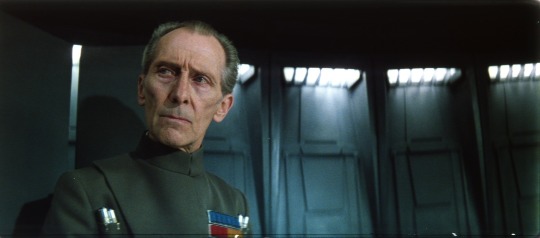
While these more surface-level similarities are worth talking about, there is a different connection beneath that surface. George Lucas was not making Star Wars in the 1940s, he was making them in the 1970s, and he was an American man with a strong distaste for the recent events of the Vietnam War.
In James Cameron’s limited docuseries, James Cameron’s Story of Science Fiction, the acclaimed director behind sci-fi hits like The Terminator, Aliens, and Avatar sits down with Lucas to discuss his space opera. Cameron asks him about his choice to depict the noble Rebel Alliance as a group of rag-tag freedom fighters, and how they are similar to what the US Government might call terrorists today. Lucas qualifies his point, specifying that he was thinking of the Viet Cong, the guerrilla fighters of North Vietnam who warred against the United States for many years, of which Lucas refers to as the “American Empire.” The clip of the interview will be pasted at the bottom of this post if you want to watch! The Rebels (top left) fought against a major technological power in the Galactic Empire (top right), in a similar way to the Viet Cong (bottom left) ending up in a war with one of the world’s military superpowers (bottom right).
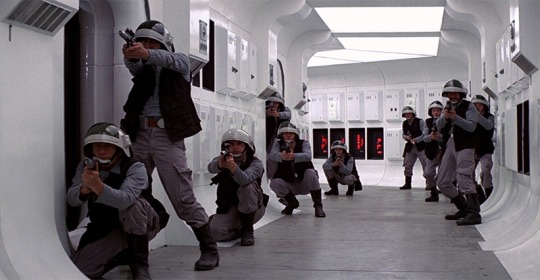
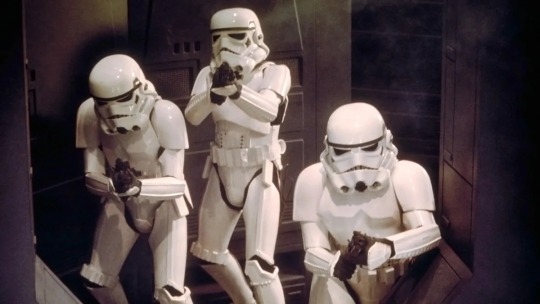

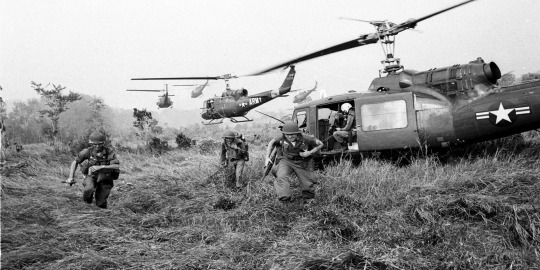
Ultimately, while Lucas was putting forward an anti-authoritarian message in general, comparing the Nazi-inspired villains of his film to America’s actions in historical events very recent to him was a biting commentary, especially when McCarthyism was still fresh in Hollywood’s memory. Although a simple message, that simplicity of the “little guy” standing up to the “big guy” trope is one that works, and is likely why Star Wars has been immortalized in every generation since its release.
youtube
I hope you found this connection as fascinating as I did, and I hope that you enjoyed reading! If you want to suggest me to cover something, feel free to mention it below! I have lots of other ideas, but I'm always open to new ones as well!
#star wars#history#world war 2#george lucas#rebel alliance#galactic empire#grand moff tarkin#wilhuff tarkin#stormtrooper#a new hope#Youtube
19 notes
·
View notes